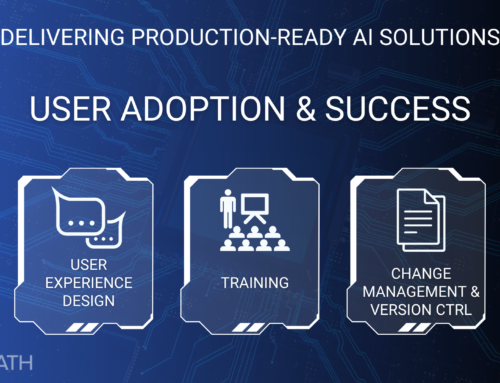As we mentioned in a previous article, Large Language Model (LLM) chatbots are popular for small businesses as well as large organizations.
For smaller organizations, lightweight and cost-effective large language models (LLMs) tend to be more suitable than the high-end enterprise solutions. These models focus on ease of deployment, lower cost, and flexibility, though they might lack some of the advanced scalability, security, and compliance features required by enterprises. Here are some LLM chatbot models that are better suited for smaller organizations:
1. OpenAI's GPT-4 (Free and API versions)
- Why It's Good for Smaller Organizations: OpenAI offers free and API-based versions of GPT-4 (like ChatGPT) that are highly accessible for small businesses. The free tier provides robust conversational abilities, while the API version offers flexible pricing based on usage, making it scalable without a high upfront cost.
- Limitations for Enterprise: While GPT-4 is powerful, the free tier doesn't offer dedicated capacity or enterprise-grade security features, which may be necessary for larger organizations handling sensitive data.
- Use Case: Small businesses can use GPT-4 for tasks like customer support, marketing content generation, and automation with minimal investment.
2. Anthropic's Claude 3 (Haiku Version)
- Why It's Good for Smaller Organizations: Claude 3 offers a Haiku version, a more budget-friendly option designed for smaller-scale use cases. It provides advanced conversational abilities, including summarization and content generation, at a fraction of the cost of enterprise-level deployments.
- Limitations for Enterprise: The Haiku version has lower message quotas and may not handle the volume or complexity that large enterprises require.
- Use Case: Ideal for small businesses needing an easy-to-integrate conversational chatbot for customer interaction and small-scale document processing.
3. Meta's LLaMA 2
- Why It's Good for Smaller Organizations: LLaMA 2 is an open-source model, allowing small businesses to use and customize it at no cost. It's especially useful for organizations that want to maintain control over their model and infrastructure but don't have large budgets for cloud-based enterprise solutions.
- Limitations for Enterprise: LLaMA 2 lacks the out-of-the-box enterprise integrations, support, and compliance features that proprietary solutions like GPT-4 and Watson offer. It requires more technical expertise to set up and scale.
- Use Case: Suitable for startups or small businesses with development teams that want a highly customizable and cost-effective AI tool.
4. Mistral Mixtral (Free Versions)
- Why It's Good for Smaller Organizations: Mistral's Mixtral models offer Mixture-of-Experts (MoE) architecture, which is computationally efficient, reducing cloud costs for smaller-scale operations. These models perform well for small business tasks like text generation, summarization, and automating workflows.
- Limitations for Enterprise: Although efficient, the free versions of Mixtral lack the robustness needed for enterprise-grade deployments in terms of security, compliance, and handling massive data loads.
- Use Case: Excellent for smaller businesses looking for a low-cost, efficient model for content creation and data processing.
5. OpenAssistant
- Why It's Good for Smaller Organizations: OpenAssistant is an open-source chatbot AI built by the community. It is freely available, making it a great option for small organizations looking for basic conversational abilities without any cost. It can be deployed and fine-tuned without relying on expensive proprietary models.
- Limitations for Enterprise: It lacks the advanced capabilities, uptime guarantees, and scalability of proprietary enterprise solutions like Cohere or Claude 3, making it unsuitable for mission-critical enterprise applications.
- Use Case: Great for small-scale tasks, such as handling customer inquiries, and for businesses wanting full control over the chatbot without ongoing costs.
Conclusion:
- For highly budget-conscious businesses that need a chatbot solution without large upfront costs, OpenAI's GPT-4 (free version) and LLaMA 2 offer excellent flexibility and capabilities.
- For businesses requiring a low-cost, advanced conversational agent, Claude 3's Haiku version and Mistral Mixtral are strong options.
- For technical teams wanting an open-source, fully customizable model, OpenAssistant and LLaMA 2 provide full control with minimal costs.
These models are excellent choices for smaller organizations looking for solid AI capabilities without the complexity and costs associated with enterprise-grade solutions.
CtiPath can assist small businesses with their Machine Learning needs, just as we help our enterprise-sized customers.





